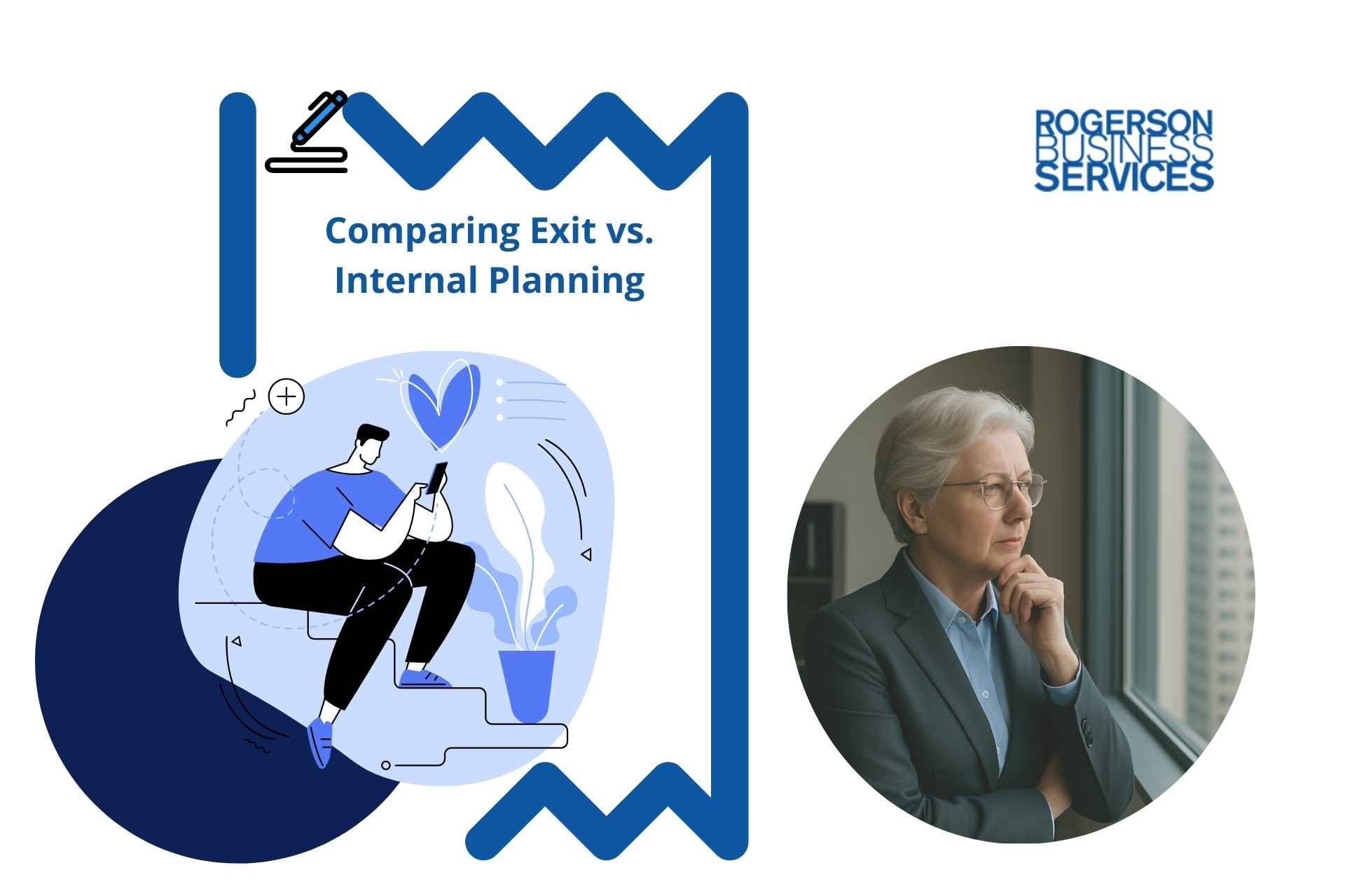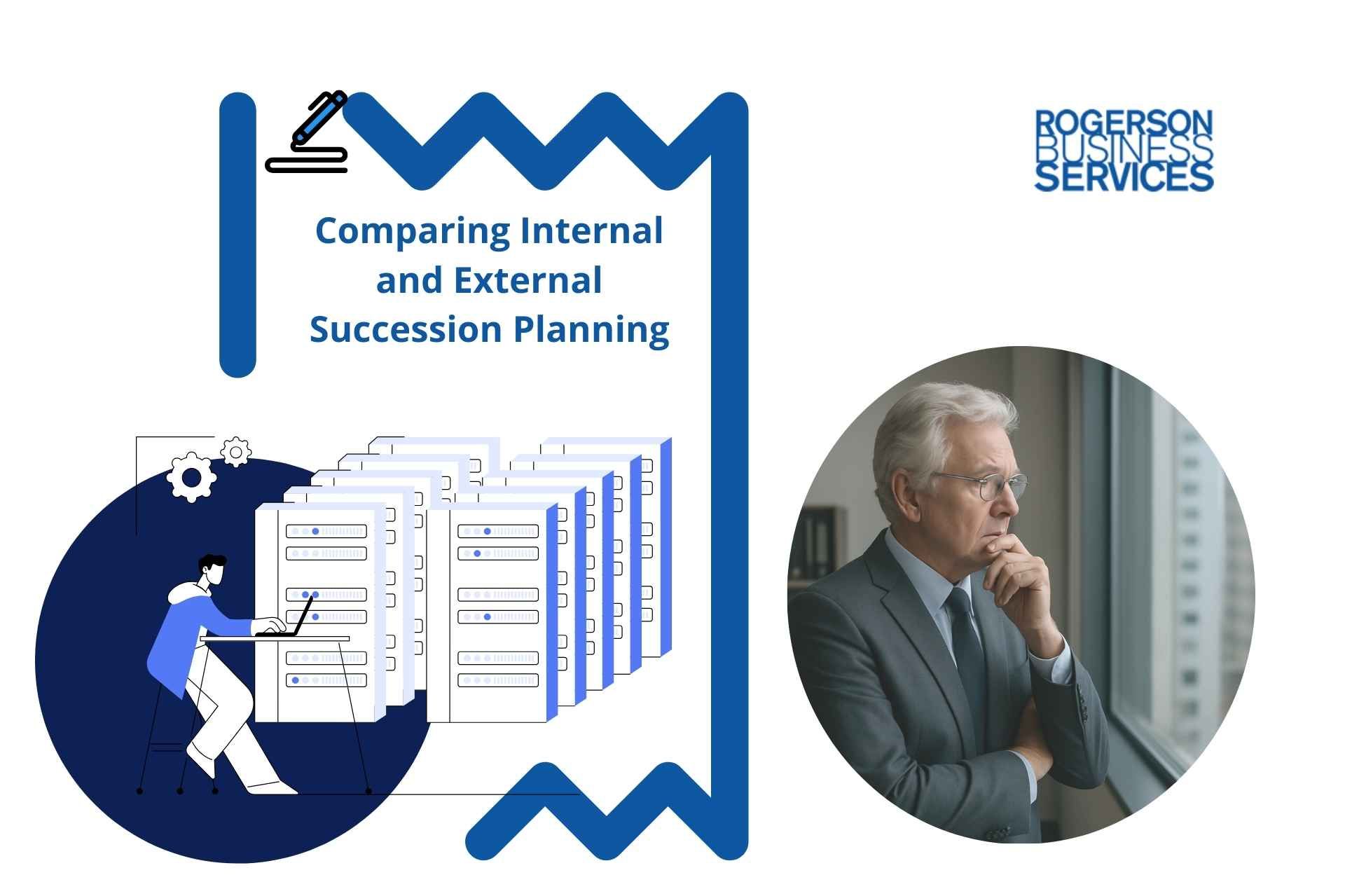I Want to Sell My Lower Mid-Market Business: Where Do I Start?
Sell My Business

If you're a business owner looking to exit owning your business and reducing your financial risk by selling your company, there are some essential steps to take before you put your business on the market.
Before you sell, it's essential to understand the steps to selling a privately held business, including calculating your company's value, knowing the market, where to advertise, how to protect the confidentiality of selling your business, and so much more. An M&A Advisor can guide you through the process of selling your business and developing an exit strategy for success.
Having a business exit strategy and making the appropriate business exit strategy planning is key to making the sale of a business profitable with the expertise of a Mergers and Acquisitions advisor. They have the knowledge and expertise to do things correctly and will bring the right set of tools you need to learn how to sell your lower mid-market business successfully.
The First Step to Selling Your Business: Evaluating Your Company
If you are thinking of selling your business, the first step is evaluating your company and determining its worth or value.
This is best done through a professional valuation service as they have access to critical data such as what other businesses have sold for in your industry and how to analyze your financial statements to make sure they present well to potential buyers.
This helps increase your chances of selling the business, but most buyers will need to get finance to close the sale. An accurate business valuation will help see the value of the business through the eyes of potential lenders.
If you've been closely monitoring your business' assets, revenue, and overall potential from the start of your company, you'll already have a good idea.
A potential buyer will request financials to validate any claims you make about your company's worth, which is essential to gauge their interest and support selling your company.
A financial assessment of your company with an M&A Advisor will determine how much your business is worth and guide you through the exit strategy process.
How do I sell my business and make enough money for future ventures and investments? This process gives you the advantage of negotiating with potential buyers for a fair price, so you can close the deal with confidence while maximizing the return on your sale.
Developing a
business owner exit strategy
is an essential step to beginning the sale of a business. Selling your business requires understanding what potential buyers are looking for and their future plans. Discussing tax-related details with an accountant is also key to a smooth acquisition process as you determine
how to sell a company.
Develop a Summary of Your Business
One of the things to be most careful about is disclosing too much about how you operate your business, including your key objectives. These are details that may be important for a buyer to know but what’s more important is you asking the buyer what is of interest to them because if you sold the business, what you are doing will change as the buyer will take the business in the direction they wish to go.
Some small businesses specialize in certain products and services, which are critical to their continued success. If you disclose too much information and the sale doesn’t close, it may damage your business and all the work you have invested your time and money in.
A carefully written business summary and plan are essential tools for a buyer to assess whether they are ready to take on the role of a new owner. This is one of the many areas where the help of an experienced M&A Advisor can make a difference.
That is, an experienced M&A advisor, like
RBS Advisors, can provide the expertise you need to develop an executive summary of your company, making it attractive to buyers.
Organize Your Legal Documents and Requirements
Does your business require unique licensing or permits to operate? Most businesses in California have this or a similar requirement. Disclosing any pertinent information that a potential buyer needs to have before they can legally operate a business is not only essential, it's a requirement for success.
Documents needed to sell your business essentially include financial reports, future planning, and details that may include expected growth through acquisition. How much can I sell my business for?
This is a question most lower mid-market business owners ask, though there is much they can ascertain from a due diligence checklist for selling a business and other tools that give them details on
how to calculate the value of a business for sale.
Market and List Your Business
The next step of selling your business is marketing or listing your company for sale to attract potential buyers. An effective strategy used by M&A Advisors is to introduce your company with a summary sheet and highlight notable benefits of the acquisition, but please be careful.
If you highlight notable benefits that make it easy to know it is your business, an employee or competitor may find out your business is for sale, which may negatively impact your business. Be careful not to include media recognition, awards for exceptional products and service levels, and especially links to your company's website.
A good M&A Advisor will identify which demographic to focus on to find the right buyer, as certain businesses are more progressive than others. A bit of research goes a long way in determining who will take an active interest in your company.
The critical step is to attract potential buyers so they sign a Non-Disclosure Agreement or NDA so you can then provide commercially sensitive information if the buyer is qualified to make the acquisition. Once you list your business for sale, you'll need to field through many inquiries before finding severe buyers. Once again, this is the advantage of using the services of an M&A Advisor as they will do all this work for you.
Give Your Buyers a Chance to Assess Their Options
Selling your company can attract a lot of interest, and fielding through buyer inquiries is critical to determine which individuals, investors, or Private Equity Groups are seriously in the market for purchasing your business.
As part of the process and after an offer has been presented, negotiated, and accepted, it is also important to allow potential buyers the opportunity to perform due diligence so they can verify the representations you have been making and therefore make a firm decision.
Many buyers will need to obtain some sort of third-party finance, so this adds an additional layer of complexity to get the business sold.
How Long Does it Take to Sell Your Business?
Businesses typically take approximately eight months to sell, on average but please be aware, only 25% of businesses actually sell.
The reason for such a high rate of businesses not selling includes inaccurate financial statements, selling a business when its performance is deteriorating, an industry is being disrupted by a new competitor or new technology, or perhaps a political event such as a new tariff or law.
For this reason, it's essential to prepare all your reports and summaries well in advance to show your business is performing strongly and it's attractive for a buyer to buy. Taking all the steps in selling a business may take longer than expected. However, it's vital to increase your chances of success and achieve your ultimate goal of selling your business while moving to a new phase of your life.
It's worth considering that many factors determine how quickly your company will sell, such as local and current market trends. If your company is well known for its solid reputation, potential buyers will have more confidence in approaching you with a serious offer.
A lesser-known small company may take longer to sell, as more research and due diligence are needed, and the buyer will be weighing their chances of success not only by looking at the price they have to pay but also their time and the investment of the necessary expertise.
Summary
There are many reasons why business owners decide to sell their small company, whether it's due to an unexpected disruption in sales or services or a change in professional or business goals. Selling your business successfully increases if you keep all your legal documents and financial reports accurate and accessible.
Making a good impression from the start will ensure a better chance of selling your company sooner and with good financial results.
With the help of an M&A Advisor, like RBS Advisors, you can have the confidence that your business is falling into good hands and focus on preparing for your next chapter in life.
If you are a retiring business owner looking to exit your lower middle market business in California, here are five tips to get you started:
1. Don't wait until the last minute to start planning your exit. The process of selling a lower middle market business can take a long time, so it's important to start early.
2. Have a clear idea of what you want to get out of the sale. Know your goals and what you're willing to negotiate.
3. Choose the right type of buyer. Not all buyers are created equal, so do your research and find the right one for your business.
4. Be prepared for a lot of due diligence. M&A buy-side due diligence is when buyers will want to know everything about your business, so be ready to provide documentation and answer questions.
5. Be flexible with the terms and conditions of the deal. It's important to be open to negotiation to get the best possible deal for your business.
Rogerson Business Services, also known as, California's lower middle market business broker is a sell-side M&A advisory firm that has closed hundreds of lower middle-market deals in California. We are dedicated to helping our clients maximize value and achieve their desired outcomes.
We have a deep understanding of the Californian market and an extensive network of buyers, which allows us to get the best possible price for our clients. We also provide comprehensive support throughout the entire process, from initial valuation to post-closing integration.
Our hands-on approach and commitment to our client's success set us apart from other firms in the industry. If you consider selling your lower middle market business, we would be honored to help you navigate the process and realize your goals.
If you have decided to value and then sell your lower middle market business or still not ready, get started here, or call toll-free 1-844-414-9600and leave a voice message with your question and get it answered within 24 hours. The deal team is spearheaded by Andrew Rogerson, Certified M&A Advisor, he will personally review and understand your pain point/s and prioritize your inquiry with Rogerson Business Services,
RBS Advisors.
Hey there! Can we send you a gift?
We just wanted to say hi and thanks for stopping by our little corner of the web. :) we'd love to offer you a cup of coffee/tea, but, alas, this is the Internet.
However, we think you'll love our email newsletter about building value and properly position your company before transition/exit your business ownership.
As a special welcome gift for subscribing, you'll also get our helping and educational guides, tips, tutorials, etc.. for free.
It's filled with the best practices for retiring serial business owners like Dan Gilbert, Larry Ellison, Warren Buffett, and many more.
Just sign up for our emails below.


